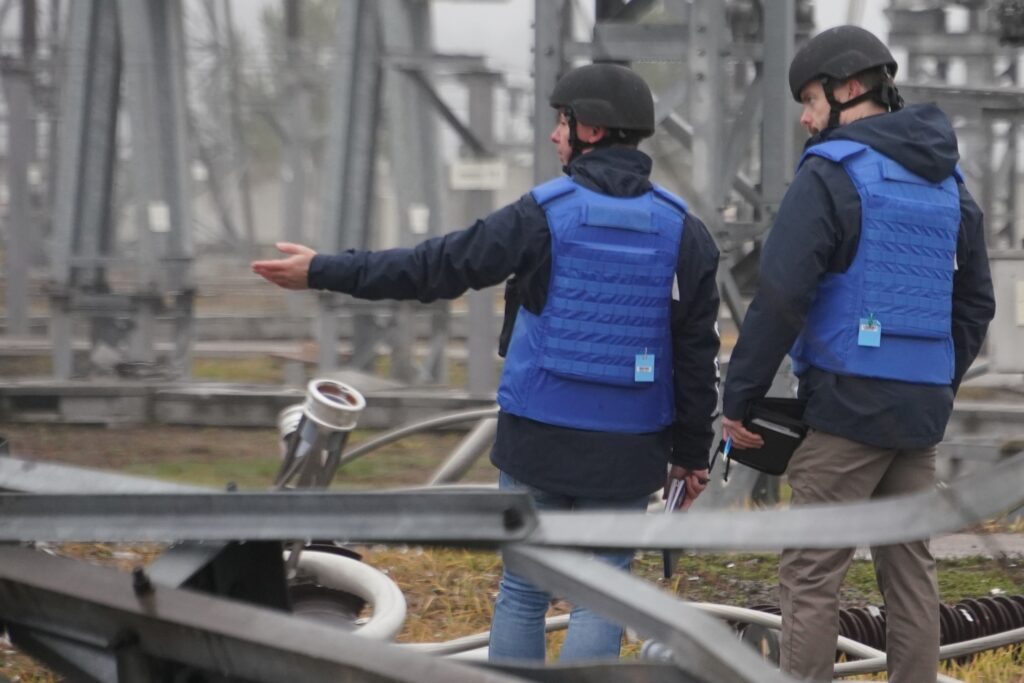No sympathy or empathy. Why did Ukrainians react coldly to Navalny’s death and funeral?
1 March 2024 23:44 Ексклюзив
Ексклюзив
russian opposition politician Alexei Navalny, who died in prison under mysterious and suspicious circumstances, was buried today at the Borisov Cemetery in Moscow near the house where he grew up.
Relatives were able to attend a brief farewell ceremony in the church, and then Navalny’s coffin was taken to the cemetery for burial. Police prevented thousands of supporters from joining the memorial service and burial.
Ukrainians, with their mental empathy and ability to share someone else’s grief, reacted coldly and reservedly to the events surrounding Navalny – first to the news of the Russian politician’s death in prison, and later even to the ordeal of his mother, who sought to see the body of her disgraced son.

Obviously, such a reaction in Ukraine is directly related to almost 10 years of aggression, occupation policy and the Kremlin’s crimes against humanity. All this, according to many people in our country, was made possible primarily due to the internet presence of both Russian citizens and opposition politicians.
Ukrainian human rights activists do not comment on the violation of Navalny’s rights in the colony. It would be strange to talk about the rights of Russian politicians after hundreds of stories of our prisoners who have survived torture in Russian camps and prisons.
In his commentary to Kommersant Ukrainskiy, the Chairman of the Board of the Human Rights and Law Foundation, Boris Zakharov ![]() said:
said:
“Navalny was a Russian imperialist, chauvinist and xenophobe. This is evidenced by his numerous statements. Therefore, Ukrainian society, which is suffering from war and genocide, as a result of which hundreds of our civilians and military are dying every day, perceives this political murder without empathy for the victim. Navalny considered himself a ‘good Russian’. He finally became one,”
– said the well-known human rights activist.
After the crimes committed on the territory of Ukraine by Putin’s army and the crushed illusions about the “brothers”, few people believe that Russian citizens are capable of serious protests against the Kremlin.
However, many analysts hoped that the funeral procession had every chance of turning into a mass protest. They said that Navalny’s corpse could ultimately prove more dangerous to the Kremlin than a living politician.
It is too early to assess the reports of the Russian opposition media on 1 March, the day of Alexei Navalny’s funeral.
The full scale of the people’s anger on the first day is estimated by the 56 people detained by the police who took part in protest rallies in different cities of Russia. In particular, in Voronezh, Sochi, Moscow, Nizhny Novgorod, Novosibirsk, Ulan-Ude, Vladikavkaz, Kazan, St Petersburg, Yekaterinburg, Tomsk, Nizhnevartovsk and others.
Russian social media reported that people at the protests called for an end to the war in Ukraine and for the mobilised men to return home. Someone shouted “Glory to the heroes!”.
Several people were detained directly at the funeral, including journalist Vasily Polonsky, who had been reporting from the funeral ceremonies all day.
Only time and the popular reaction to the election results, where Putin won a priori, will tellwhether today ‘s actions will be a real blow to the official myth of universal love for Putin. At least that’s what the Kremlin believes.
DID THE DOOMED NAVALNY HAVE ANY HOPE OF SALVATION?
The story that happened to Russian opposition leader Alexei Navalny in 2020 was actually predictable and repeated itself, but in a much more tragic scenario. Three and a half years ago, he was put in a coma as a result of poisoning. Finally, under international pressure, Navalny was flown to Germany, where local medicine brought him back to life. There, experts also found out that the politician had been assassinated with a chemical warfare agent, which is only available in the arsenal of the Russian special services.
If Navalny’s body or tissue samples were to fall into the hands of independent experts today, it is highly likely that the cause of death would be revealed.
The official version of a blood clot that broke off and caused his death is not credible due to the speed with which it appeared. Although, given Navalny’s condition, this explanation might have looked convincing. The poisoning clearly did not improve his health. And 47 terms (15 days each) in a punishment cell certainly did not.
“Kommersant Ukrainian spoke with a native of Dagestan who served 22 years in one of the notorious colonies in the Kirov region of Russia, which is known for its harsh conditions. Yasin, as the interviewee called himself, has been in the punishment cell more than once.
“It’s easy to lose your health in the isolation ward if the administration wants you to. They can throw me into a cold cell where the temperature is 12-15 degrees. And any sweaters and jackets are forbidden there: underwear and shirts are all…. And they can put you in a cell with a patient with open tuberculosis. Infection in a cell of 6-7 square metres is a matter of time. They put you in schizo for 15 days, but they can extend it as long as they want: the 15th day is over, you go to the post, sign for your release – and back to the same cell. As for torture: again, it all depends on the administration of a particular institution. There are areas in each detention centre that are not monitored by CCTV cameras. They beat people there if the authorities decide so. Lately, the staff of the penitentiary service department have been playing with stun guns,”
– said Yasin, who served almost two decades in a Russian colony.
Repentance and pleading for clemency under the neo-Stalinist regime do not guarantee physical survival. Therefore, Navalny acted quite rationally – if he could not prevent his physical death, he managed to save his face and reputation for now. He still has a chance to become a symbol of the Russian resistance, albeit a fragile one.
The political motivation behind the persecution of Alexei Navalny by Russian law enforcement agencies is obvious to everyone.
The Memorial Human Rights Centre has previously recognised him as a political prisoner. In a commentary to Kommersant Ukrainskiy, the head of the Support for Political Prisoners programme and a member of the Board of the Memorial Human Rights Centre, Sergey Davydis, confirmed that the conditions of detention in the penal isolation wards of Russian colonies are torture.
“Schizo in the special regime colony in Kharpa can differ from other penal isolation units for the worse, in particular because of the cold,”
– davydis added.
He noted that there are methods of bringing those responsible for Navalny’s death to justice, including the International Court of Justice in The Hague, or the so-called universal jurisdiction, which allows for the trial of serious violations of humanitarian law in any country.
“The mechanisms are there, but there is no access to the suspects in the crimes that caused Navalny’s death,”
– added the human rights activist, who is living outside Russia after a court ban on the Memorial Human Rights Centre.
In a commentary to Russian journalists, the head of Memorial, Oleg Orlov, directly called Navalny’s death a murder.
Ukrainian political analyst Volodymyr Fesenko formulated the conclusion that Ukrainians should draw from Navalny’s death: there can be no hope for the Russian opposition.
“Navalny’s death is a signal. First of all, for the West. We’ve known this since 2014, and they seem to be just beginning to realise the futility of hoping to negotiate with Putin. This is a predator that can only be stopped by force.”
– fesenko summarised to Kommersant Ukrainsky.
Author: Anvar Derkach









